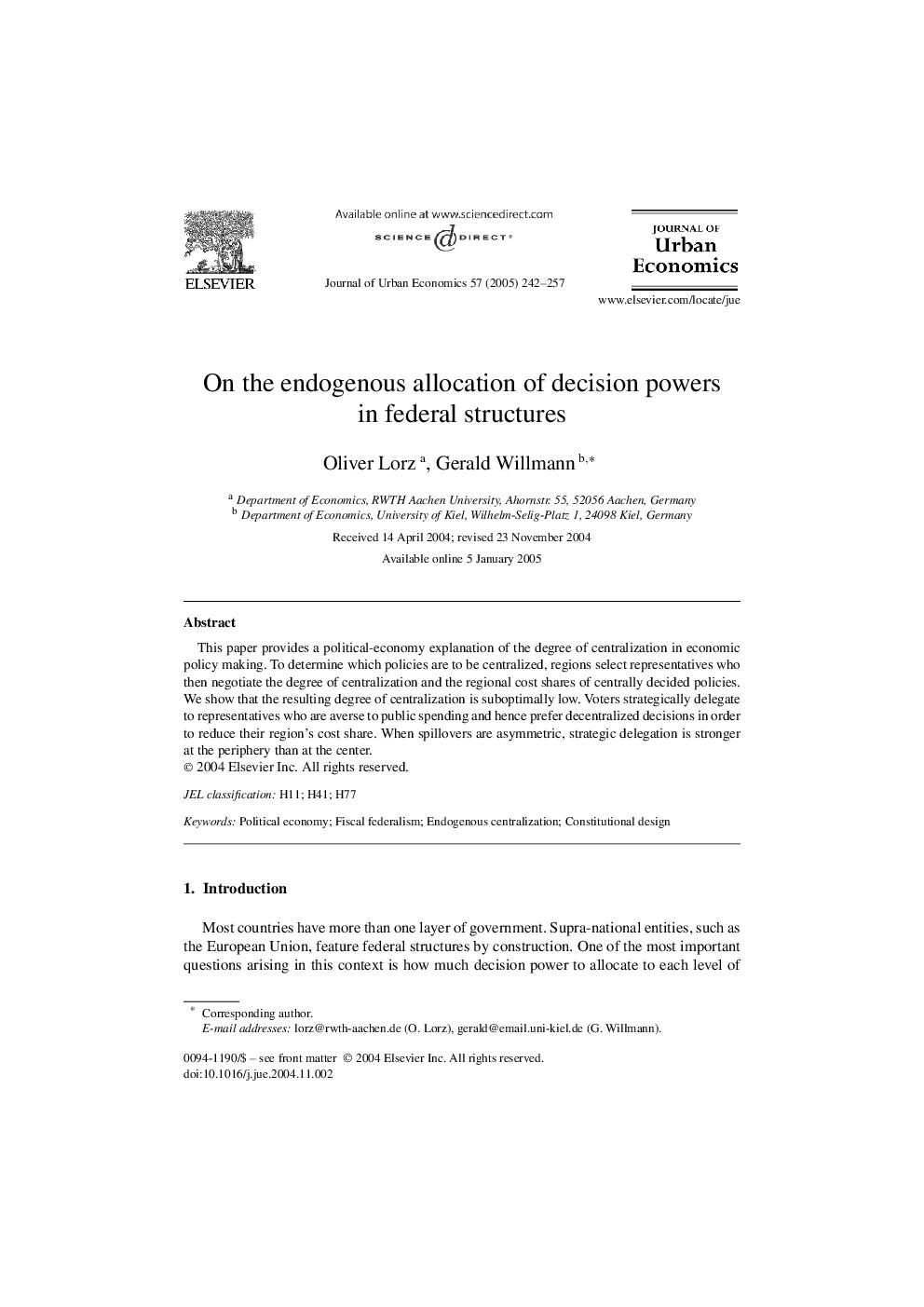| Article ID | Journal | Published Year | Pages | File Type |
|---|---|---|---|---|
| 10479776 | Journal of Urban Economics | 2005 | 16 Pages |
Abstract
This paper provides a political-economy explanation of the degree of centralization in economic policy making. To determine which policies are to be centralized, regions select representatives who then negotiate the degree of centralization and the regional cost shares of centrally decided policies. We show that the resulting degree of centralization is suboptimally low. Voters strategically delegate to representatives who are averse to public spending and hence prefer decentralized decisions in order to reduce their region's cost share. When spillovers are asymmetric, strategic delegation is stronger at the periphery than at the center.
Related Topics
Social Sciences and Humanities
Economics, Econometrics and Finance
Economics and Econometrics
Authors
Oliver Lorz, Gerald Willmann,
